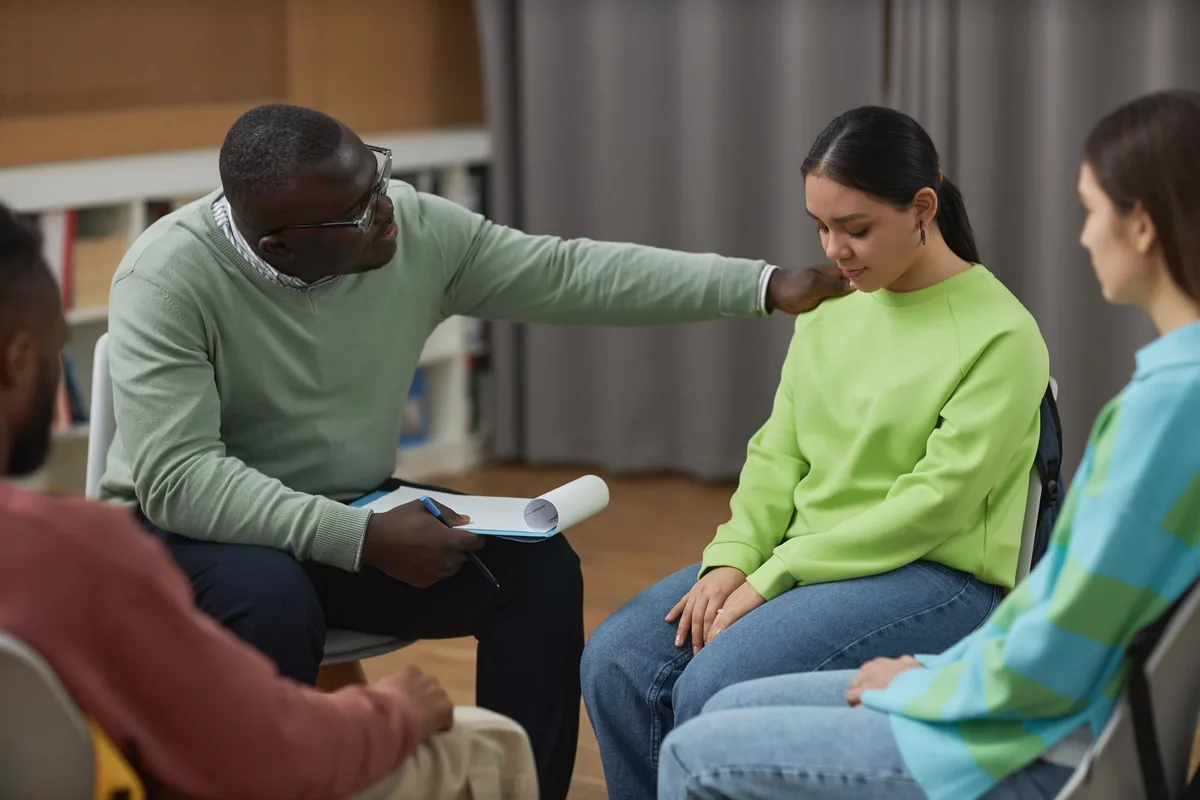24/7 Helpline:
(866) 899-221924/7 Helpline:
(866) 899-2219
Learn more about Dual Diagnosis Rehab centers in Evangeline County
Dual Diagnosis Rehab in Other Counties

Other Insurance Options

Ceridian

ComPsych

MVP Healthcare

Sutter

Regence

CareFirst

Horizon Healthcare Service

Ambetter

Group Health Incorporated

Cigna

United Health Care

Premera

Aetna

AllWell

Amerigroup

BHS | Behavioral Health Systems

PHCS Network

Self-pay options

State Farm

Magellan Health

Compass Behavioral Center
Compass Behavioral Center is a private rehab located in Mamou, Louisiana. Compass Behavioral Center ...
















Ville Platte Behavioral Health Clinic
Ville Platte Behavioral Health Clinic by Acadiana Area Human Services District provides comprehensiv...











































